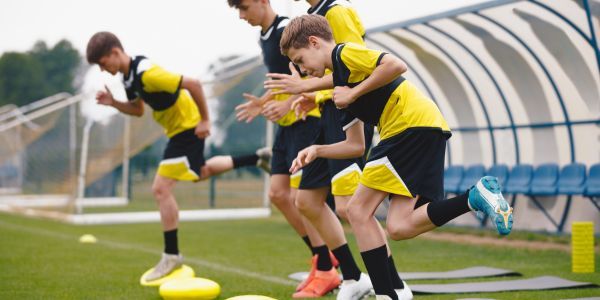Truth About Mental Training for Kids
Do your athletes avoid mental coaching because they don’t understand it? To help your athletes, you must first know why athletes avoid mental coaching…
Based on our survey with sports parents, a whopping 53% of the parents said their athletes resist mental training–for many reasons.
One reason is that athletes buy into myths about working with a mental performance coach…
The truth is, improving their mental game skills can improve their happiness and performance-in and out of sports. And keep athletes in sports longer!
For example, mentally strong and confident athletes stay composed after making mistakes. They can grind it out and finish the game strong.
Myths About Mental Training for Athletes
Here’s the problem: Sports kids believe a number of myths–silly myths, really–about the value of mental performance coaching.
Here are just a few:
1. Kids think they are already mentally tough.
But even kids who are mentally tough can find ways to improve their game For example, do they excel in practice, but freeze up during games? Do they worry about what others think of them?
With mental training, athletes, parents, and coaches can identify common confidence busters, see if their athletes suffer from them and take steps to address them.
2. Kids say their coaches don’t value mental training-so neither should they.
Not every coach focuses on mental training. Some coaches have strengths in other areas. Or some provide mental training intuitively, but don’t directly call it mental training.
They might say, “I know you tend to freeze up when your parents walk into practice. You need to focus on what you’re doing, instead of what’s going on off the court.”
If they say this, they’re giving a mental game tip.
We try to simplify mental training for athletes so they can grasp the concepts and apply them easily to sports.
3. Kids think something must be wrong with them to work with a mental coach.
We know athletes worry that others will label them for being weak if they work with a mental coach. This is false…
The same challenge exists for therapists and psychologists today.
If athletes know that their role models engage in mental coaching, they are more likely to accept it.
In addition, athletes don’t have to have challenges/problems to work with a mental performance coach. We also help athletes improve practice habits and perform more consistently.
Related Kids Sports Psychology Articles:
- Sports Parents and The Problems with Focusing On Kids’ Mistakes
- The Problems with Favoritism in Youth Sports Athletes
- Kids Fear of Mental Coaching
*Subscribe to The Sports Psychology Podcast on iTunes
*Subscribe to The Sports Psychology Podcast on Spotify
THE FOCUSED SPORTS KID (DIGITAL DOWNLOAD)

“The Focused Sports Kid” helps sports kids who get easily distracted and can’t maintain their focus in competition. In this program, you and your athlete learn concentration-boosting strategies to help young athletes develop laser focus during competition. “The Focused Sports Kid” is two programs in one. You get a manual and Audio program for parents/coaches, and a PDF workbook and audio programs for young athletes.
“We just completed the first ten tips, it has helped tremendously for (our daughter) and us. We’ve learned to keep our behavior and comments in check. She’s letting mistakes happen and not worrying about them, she’s now just moves on to the next play with the same attitude as before the mistakes. She’s playing more aggressively all game. Her coach even mentioned that whatever we are doing, keep doing because it’s working.” ~Scott, Sports Dad

